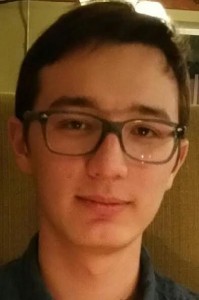- California Assembly OKs highest minimum wage in nation
- S. Korea unveils first graphic cigarette warnings
- US joins with South Korea, Japan in bid to deter North Korea
- LPGA golfer Chun In-gee finally back in action
- S. Korea won’t be top seed in final World Cup qualification round
- US men’s soccer misses 2nd straight Olympics
- US back on track in qualifying with 4-0 win over Guatemala
- High-intensity workout injuries spawn cottage industry
- CDC expands range of Zika mosquitoes into parts of Northeast
- Who knew? ‘The Walking Dead’ is helping families connect
Why Brussels Happened
Last week, Belgian-born terrorists attacked and killed thirty-five people and injured more than three hundred. The country has been devastated and consigned to a state of constant fear. How and why did this happen?
One of the main areas Muslims become radicalized is the Molenbeek neighborhood in Brussels. High school dropout and youth unemployment rates are some of the highest in the nation, and radical preachers recruit disaffected, disillusioned youth to their cause. Many tribulations such as unemployment, poverty, and alienation make them feel that there is no alternative but extremism, making the preacher’s message seem sweet. However, this vicious cycle is not the deepest root of the problem in Belgium, but rather the stem and thorns that can be seen above the ground. The long-term cause of this incident is rooted deeply within Belgium’s history.
Turkish and Moroccan immigrants moved in during the 1960s looking for work, and were used as a source of cheap labor. In America, while some immigrants may never be easily integrated into society, an effort, whether conscious or not, is always made to assimilate them. However, Belgium, already culturally fractured between Dutch and French speaking peoples, instead encouraged these immigrants to form their own insulated urban communities. When Belgium began moving away from industrialism and factories started closing down, unemployment, poverty, and all that a job loss of this scale entails set in, thus creating the toxic conditions of areas like Molenbeek.
Not only that, the response to these kind of problems, or lack thereof, has let these noxious afflictions fester and rot; because the government is so divided between the Dutch North, French South, and the capital, Brussels, there has been almost no cohesive government response to the situation. Belgian national Salah Abdeslam, suspected of being one of the attackers in Paris, slipped back over the border into Belgium, and it took counterterrorist officials four months to find possibly one of the most wanted men in Europe, even though he was living in Molenbeek, a stone’s throw away from the home he grew up in.
Belgium needs to start by unifying their disparate peoples, whether they speak Dutch, French, or Arabic. Only then can the process of healing and prevention begin.













kelly
November 27, 2017 at 10:11 AM
yes..I like the basic concepts behind Second Life but it seems incredibly outdated and when I played it was intensely non-intuitive / user friendly to an extent that made EVE look like a game for toddlers. thanks from
togel online